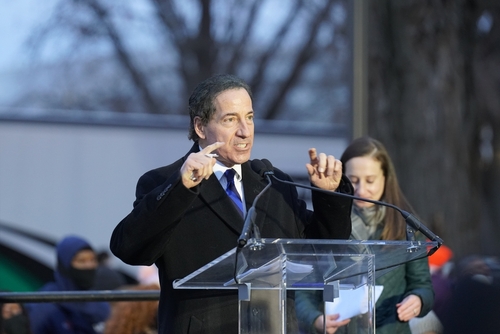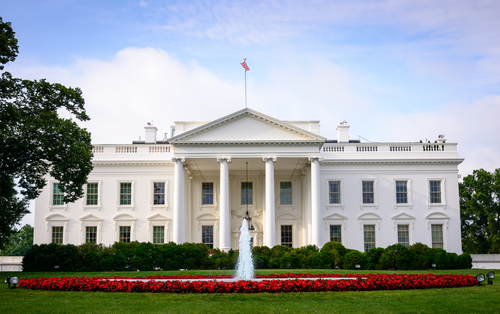
Congress considering law to verify citizenship before voting
Listen To Story Above
American citizenship should be a fundamental requirement for participating in federal elections – that’s the driving force behind the SAVE Act (HR 22). This groundbreaking legislation in the House of Representatives aims to implement mandatory citizenship verification for federal election voter registration, a measure that resonates with most Americans across the political spectrum.
Despite widespread public support, Democratic lawmakers continue to oppose the initiative. After blocking the bill last year, they’re mounting another resistance campaign, joined by self-proclaimed democracy advocates and liberal media figures who are working to generate public opposition to this reasonable measure.
The legislation, initially put forward by Representative Chip Roy (R-TX), would modify current law to ensure states verify citizenship status during federal election registration. The proposal accepts various forms of identification, including passports, birth certificates, and military IDs – documents already required for obtaining a REAL ID.
Florida’s 7th District did not send me to DC to play the same song & dance. We must secure our borders, force government to be fiscally responsible, and protect our elections. The SAVE Act passed July 10, 2024, and attaching to the Pelosi level spending bills isn’t going to force… pic.twitter.com/N5mpYe3UK2
— Cory Mills (@CoryMillsFL) September 17, 2024
The current system’s honor-based approach to voter registration has created vulnerabilities. Following years of progressive legal challenges, courts have interpreted federal law in ways that prevent states from verifying citizenship claims. Currently, individuals can register to vote by simply marking a citizenship checkbox.
Recent events demonstrate the real-world implications of these loopholes. Federal prosecutors charged 19 non-citizens with illegal voting activities in 2016, while Michigan’s Secretary of State recently revealed 15 non-citizens voted in 2024. Similar investigations in Ohio, Texas, and Virginia uncovered substantial numbers of non-citizen voters. While these numbers might not swing presidential races, many local elections are decided by minimal margins. More importantly, each illegal vote effectively nullifies a legitimate citizen’s voice.
Democrats dismiss the SAVE Act as unnecessary, citing existing federal prohibitions on non-citizen voting. However, their actions suggest resistance to enforcing these restrictions. The Biden administration recently opposed Virginia’s attempt to remove 1,500 self-identified non-citizens from voter rolls. Progressive politicians have even advocated for non-citizen voting rights in Washington, D.C., while New York City defended a similar law until the state’s highest court struck it down.
Send the SAVE Act, which passed in the House on 7/10/24, to the Senate and fight to get it passed—block the CR and shutdown the government if you have to until it happens. That’s how you get it done, @chiproytx. pic.twitter.com/hv9fPq7BOm
— Grace Chong, MBI (@gc22gc) September 18, 2024
Critics’ arguments against the bill appear increasingly far-fetched. Claims that the legislation would prevent married women who change their names from voting ignore long-established procedures for handling name changes. The bill specifically addresses identification discrepancies and includes provisions for citizens lacking standard identification forms.
The SAVE Act would strengthen election integrity by equipping officials with better tools to screen non-citizens and maintain accurate voter rolls through access to federal databases. It also aligns with strong public sentiment – a recent Gallup poll showed 83% of Americans support citizenship verification requirements for voter registration. Eight states recently added citizen-only voting provisions to their constitutions.
While President Trump’s recent Executive Order on elections represents progress, executive actions have limitations. Congressional action is necessary for comprehensive reform.
Congress faces a clear responsibility to preserve American elections for American citizens. The question remains whether Democratic lawmakers will align with public opinion or continue their opposition as voters watch closely.




